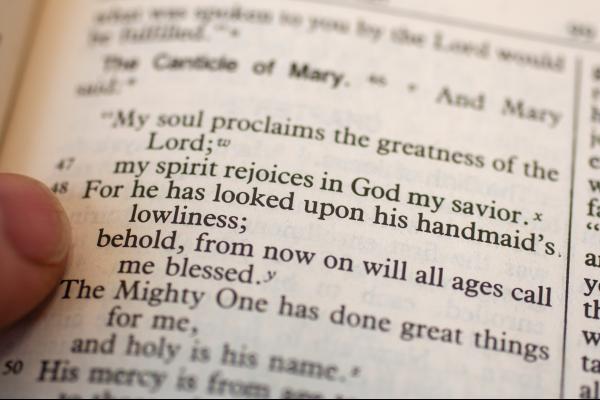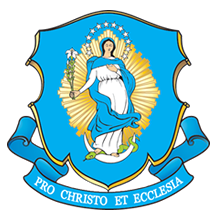
A truly humble person accepts that God can do great things through them, as He did through Mary, and as He continues to do today through those who humbly serve Him.
By Dr. Robert Stackpole
As we celebrate the Solemnity of the Assumption of the Blessed Virgin Mary into Heaven on Aug. 15, I wish to share a witticism I once read regarding Mary’s Assumption. The reason Mary was assumed, body and soul, into Heaven was because she always took herself so lightly.
Get it? She took herself lightly.
Like many fine wisecracks, there’s a fundamental truth in that statement. After all, we’re talking about the Blessed Virgin Mary, she who was most humble.
'Hail, favored one'
Recall when the Archangel Gabriel praised her at the Annunciation with the words “Hail, favored one” (Lk 1:28). She was troubled at first. She certainly didn’t wish for high praise. But then having gathered herself, she responded with humility, “Behold, I am the handmaid of the Lord. May it be done to me according to your word” (1:38).
That’s the first declarative statement in Scripture attributed to Mary. Those words go to the very heart of who we all are called to be: Humble servants in the Kingdom of God.
Mary's words
Lately, I’ve been thinking a lot about those words, as well as the last words in Scripture attributed to Mary. When I’m praying the Luminous Mysteries and get to the Wedding Feast at Cana, Mary’s words still manage to shake me to my core. “Do whatever he tells you’” she tells the servers (Jn 2:5). The “he” she is referring to is, of course, Jesus Christ Himself, who then proceeds to perform His first public miracle (of turning water into wine). Afterward, we learn that “his disciples began to believe him” (Jn 2:11).
Why do those words shake me to my core? Because Christ thusly revealed His glory, and so now the next move is ours. In the face of God’s greatness and His will that we be saved, we are obliged to do. We are obliged to act.
But how? We need not guess. We should endeavor first to take ourselves “lightly.” But don’t just take my word for it. On the Solemnity of the Immaculate Conception in 1937, St. Faustina saw the Blessed Mother, who said to her:
“I desire, My dearly beloved daughter, that you practice the three virtues that are dearest to me — and most pleasing to God. The first is humility, humility, and once again humility; the second virtue, purity; the third virtue, love of God. As My daughter, you must especially radiate with these virtues” (Diary of Saint Maria Faustina Kowalska, 1415).
A truly humble person accepts that God can do great things through them, as He did through Mary, and as He continues to do today through those who humbly serve Him. How do we cultivate this virtue of humility? For starters, by frequently making an examination of conscience and going to Confession, two actions that force us to look at ourselves in a more critical — but healthful — light. Remember, Mary took herself lightly. That is to say, she didn’t leave herself in the dark about who she was as a child of God.
Humility
Mary revealed her humble understanding of reality when she sang her song, the Magnificat (see Lk 1:46-55). In part, she says, “The Almighty has done great things for me, and holy is his name.” May we have a similar outlook on our lives, realizing the great things that God can accomplish through us.
The favored words for us Divine Mercy devotees are those inscribed beneath the Image of Divine Mercy: Jesus, I trust in You. There’s incalculable merit to praying those words throughout our day. Even if we sometimes question whether we truly trust in Him, keep repeating those words. Keep offering yourself as Mary did, as an instrument to do His will so that we may share in the fulfillment that Mary received at the end of her life. By doing God’s will, we can expect the cherished privilege Mary has already received, the privilege of someday being fully united with God, soul and (eventually) body, for all of eternity.
Through Mary’s humility, God accomplished great things. When we take ourselves so lightly it makes it rather easy to reflect that which is Christ, the Light of the World.
Robert Stackpole, STD, is director of the John Paul II Institute of Divine Mercy, an apostolate of the Marian Fathers of the Immaculate Conception.
{shopmercy-ad}
















